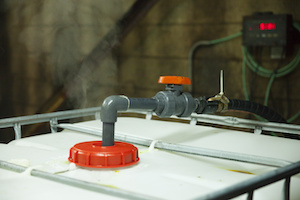February 26,2020

What’s the Difference between Toll Manufacturing and Contract Manufacturing?
Sometimes we hear terms so frequently, that we assume we know what they mean when we may actually not know a particular definition of the term. In the chemical manufacturing space, you’ll see the terms “toll manufacturing” and “contract manufacturing” thrown around liberally. In fact, you’ll see these two terms used interchangeably. While they are both very similar in reality, there’s at least one big difference. Let’s explore toll manufacturing and contract manufacturing today.
Similar Use Cases and Outcomes
Toll manufacturing and contract manufacturing are ways that manufacturers of chemical products can expand and diversify their supply chain. Strategically, it often makes sense to use a toll or contract manufacturer when your own facilities are at capacity, or when you’ve come up with a product innovation that would require capital investment that may make better sense after the product proves its market viability. Regardless of the situation that provokes a toll or contract manufacturing relationship, chemical product manufacturers can save time and money by extending the supply chain.
The Difference in Toll Manufacturing
Often, manufacturing firms may have the raw materials in place, but simply need to outsource the manufacturing (or application of a specific finish, such as a waterproofing coating) and packaging process. This situation is the literal scenario for toll manufacturing.
At Riteks, we have the ability to take a customer’s chemical raw materials into our state-of-the-art facilities and handle the rest. We will manufacture the end product to the manufacturers exact specifications, then package according to their needs, whether it’s into 5-gallon pails or bulk quantities.
The Contract Manufacturing Difference
With contract manufacturing, chemical product companies will still outsource the manufacturing processes, packaging, and even customer delivery. The big difference with regard to toll manufacturing is that contract manufacturers will also source and procure the materials needed for production. Thus, unlike toll manufacturing, chemical manufacturing is a complete outsourcing of the production, packaging, and delivery. It’s turnkey.
The benefits to customers are obvious, as they can not only leverage outsourcing the processing of the blend, but also take advantage of the raw material buying power of a company like Riteks. The finished product can be branded or white label, and we are known for our custom manufacturing to help our customers meet the unique needs of their customers.
The Flexibility to Meet Your Needs
At Riteks, we have built a business model that’s flexible to our customers’ needs. We have the team in place to recommend the right processes, packaging, and logistics to create a true turnkey solution. If it’s simply a toll blend that you need, we can do that, too. Regardless, Riteks is ready to help. Contact us today to learn about our toll manufacturing and chemical manufacturing programs.





